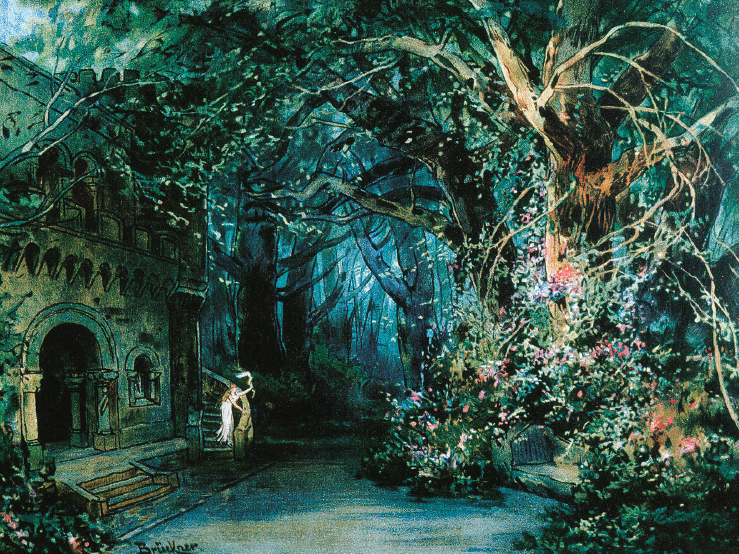WAGNER’S TRISTAN AND ISOLDE (1859)
Wagner’s first completed music drama was the great love story of Tristan and Isolde, taken from medieval legend. There was already a mystical undertone to the legend, which Wagner, writing the opera’s libretto, refined under the sway of Romantic thinking.
The composer was only too pleased to find support in the writings of a contemporary philosopher, Arthur Schopenhauer, who had made his own formulation of the Romantic insight into the central importance of music in emotional life. All human experience, said Schopenhauer, consists either of emotions and drives — which he called “the Will” — or of ideas, morals, and reason, which he downgraded by the term “Appearance.” He insisted that the Will always dominates Appearance, and that our only direct, unencumbered sense of it comes through music.
“Through my music!” we can almost hear Wagner exclaiming. And in a music drama, what would exemplify the Will better than the strongest human drive that is known, sexual love?
Tristan and Isolde is not just a great love story, then, but something more. It is a drama that presents love as the dominant force in life, one that transcends every aspect of worldly Appearance. Many love stories hint at such transcendence, perhaps, but Wagner’s story makes it explicit, on the basis of an actual philosophy that the composer espoused.
The plot shows step by step the growing power of love, and the music — with its hypnotic orchestral web of leitmotivs and Romantic harmonies of unmatched richness — grows more and more powerful, too. In Act I, love overpowers Isolde’s fierce pride, which had previously made her scorn Tristan as her blood enemy, and also Tristan’s chivalry, which had demanded that he escort Isolde safely to her marriage to King Mark of Cornwall, his uncle and liege lord. In Act II, love overcomes the marriage, when the pair meet in the longest unconsummated love scene in all of opera. Their tryst is discovered, and Tristan is mortally wounded — but love overcomes the wound, too. In Act III he simply cannot or will not die until Isolde comes to him from over the seas. Isolde comes; Tristan dies in her arms; she sinks down in rapture and expires also. For both of them, death is not a defeat but an ecstatic expression of love.
At this point (if not earlier) the plot passes the bounds of reality — which was exactly what Wagner wanted to show. Tristan and Isolde, hardly characters anymore but stand-
